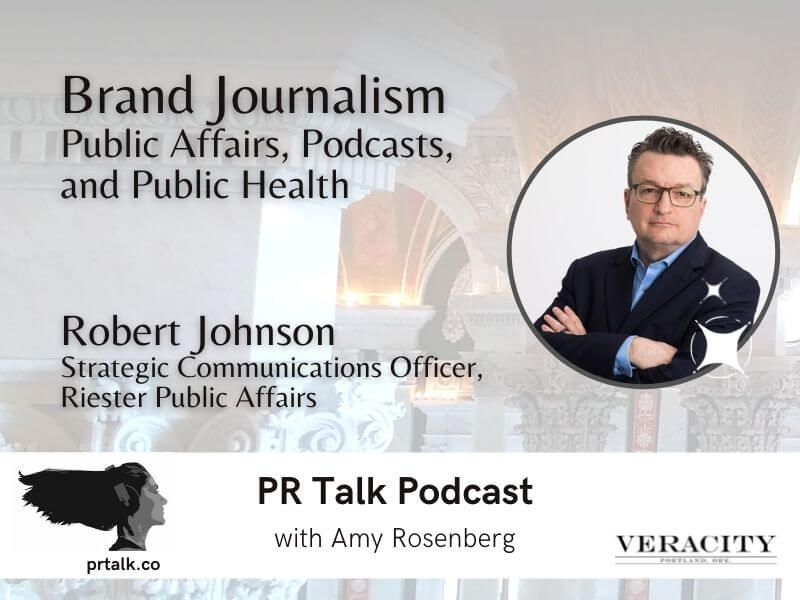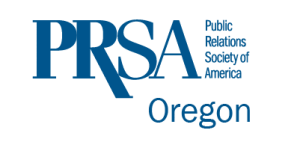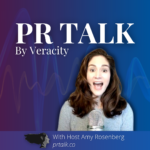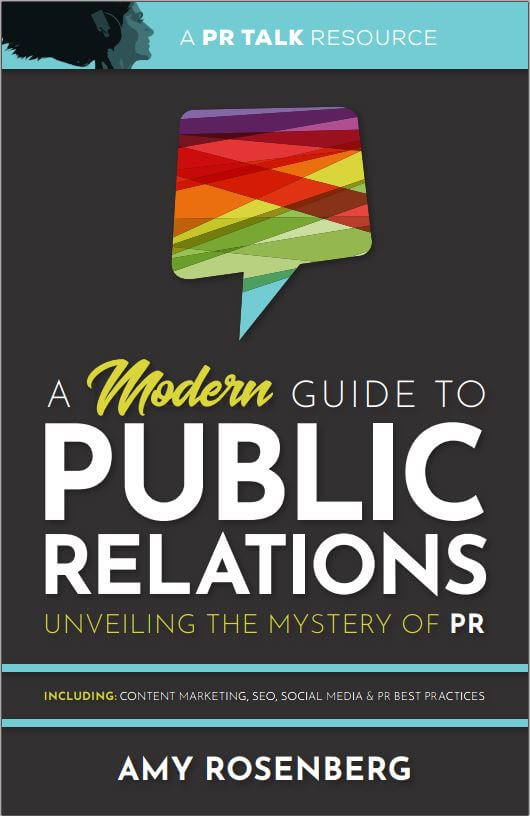Public Affairs, Podcasts, and Public Health
In this week’s episode of the PR Talk Podcast, Amy speaks with Robert Johnson about the differences and similarities between public affairs and public relations, pitching policy, how to target an audience, and podcasting.
Robert is the Strategic Communications Officer at Riester Public Affairs and hosts two podcasts: PR Nation and Public Health Review. As the Strategic Communications Officer of Riester Public Affairs, Robert develops strategies to communicate vital information to target audiences and directs successful public relations plans for dozens of clients and organizations.
The Differences Between Public Affairs and PR
Amy asks Robert what he thinks the differences are between the two. Robert responds, saying he thinks the difference between public relations and public affairs is related to the kind of work being done. Public Affairs focuses on government work, lobbyists, lawyers, and so on. He believes the key difference is, in most cases in PR you’re pitching a product, while in public affairs, you’re most likely pitching policy.
In response, Amy asks, “Well, how do you pitch policy?” Robert says that it’s pretty much the same as PR, although turnaround time may be the differentiator in public affairs. He’s conducted many high-stress political campaigns that require high output and where the speed of information dissemination (and what’s being disseminated) can vary widely even in a day.
How Do You Reach Decision Makers?
Robert explains that he has stopped relying on outside media channels to get content broadcast or published. He tells Amy at his company he encourages clients to do more of their own storytelling essentially becoming their own newspaper publisher, radio broadcaster, or television journalist.
“You have to use all these amazing tools, all the amazing talents that are now available to help tell stories and then create your own set of journalism channels/outreach pathways,” he says.
Amy agrees and notes that podcasts are one of those pathways, which his company helps create for clients. Robert adds, they also devote time to creating audio content and they have started offering video podcast work as well. In his experience, he understands how difficult it can be for companies to step into podcasting. That’s one of the motivations for the services his company offers — to help companies use tools like podcasting to share their news.
How Do You Get Your Audience to Review, Listen, or Read Your Blogs?
Robert says there are many different ways to start building a community around your content. You can target news media, use social media, use geo-targeting, and produce targeted lists. But, ultimately he explains, the best way to build community is to create a good product, have patience, and continue nurturing a relationship with your audience. He concludes, there isn’t a one-size-fits-all approach to it; it mostly depends on how much work you’re willing to do and how patient you can be.
Amy and Robert talk about much more in the whole episode, including media channels to pitch, his experience as a press secretary, and his work in public health. Listen now to also hear about Amy’s affinity for the TV show Mad Men!
Don’t Miss an Episode
You can access more great episodes by subscribing to the PR Talk podcast on iTunes, Stitcher, Google Podcasts, iHeart Radio and Spotify.
About the guest: Robert Johnson
Robert Johnson has reported, managed, or campaigned on issues of all sizes, working with reporters covering the world as well as local communities. He practices, studies, teaches, podcasts, and blogs about public relations and communications, drawing on more than 40 years of experience in public relations, political communications and campaign management, government crisis and public affairs, and broadcast and wire service journalism.
Connect and follow Robert on social media:
This episode of PR Talk is brought to you by PRSA Oregon
Throughout Oregon and Southwest Washington, PRSA provides members with networking, mentorship, skill building and professional development opportunities – whether you are a new professional fresh out of college or a skilled expert with 20 years in the industry. Check out PRSAoregon.org for more information on how membership can help you grow and connect.











